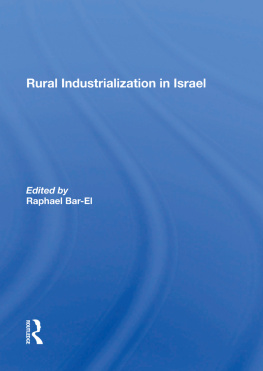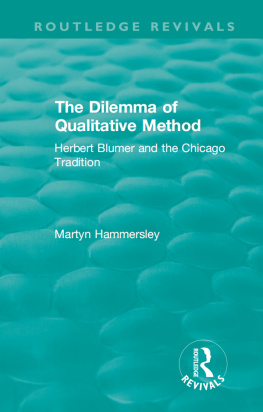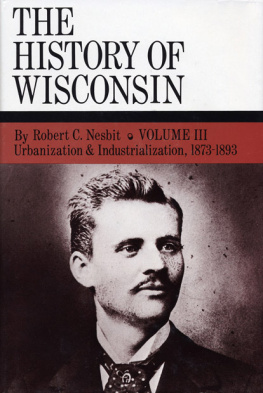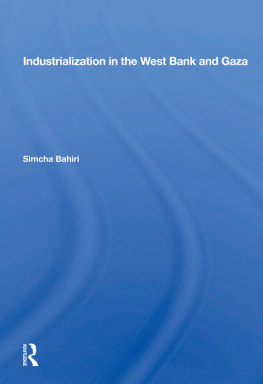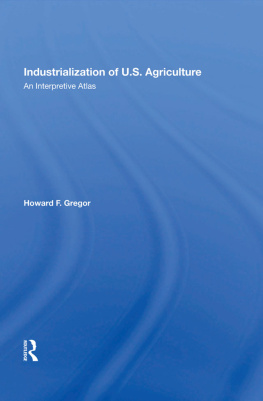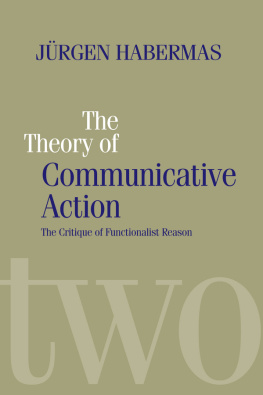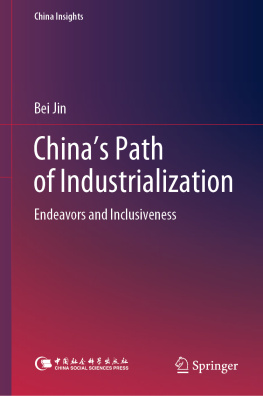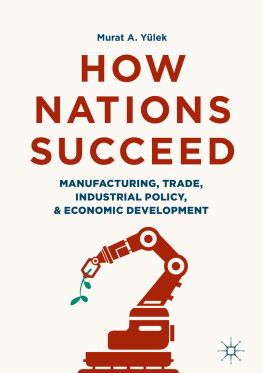
Industrialization as an Agent of Social Change
A Critical Analysis
COMMUNICATION AND SOCIAL ORDER
An Aldine de Gruyter Series of Texts and Monographs
Series Editor
David R. Maines, Pennsylvania State University
Advisory Editors
Bruce E. Gronbeck, University of Iowa
Peter K. Manning, Michigan State University
William K. Rawlins, Purdue University
Becoming Mature: Childhood Ghosts and Spirits in Adult Life
Valerie Malhotra Bentz
Life as Theater: A Dramaturgical Sourcebook, Second Edition
Dennis Brissett and Charles Edgley, Editors
Industrialization as an Agent of Social Change
Herbert Blumer
Edited with an Introduction by David R. Maines and Thomas J. Morrione
IN PREPARATION
Time and Social Process: Gender, Life Course, and Social Organization
David R. Maines
The Alcoholic Family
Norman K. Denzin
Film and the American Alcoholic
Norman K. Denzin
Organizational Communication
Peter K. Manning
Sociocultural Dimensions of Rhetoric and Communication
Bruce E. Gronbeck
Friendship Matters: A Communication and Life Course Perspective
William K. Rawlins
Communicating Prison Culture: The Deconstruction of Social Existence
Jim Thomas
Discursive Acts
R. S. Perinbanayagam
Social Organization
David R. Maines
Industrialization as an Agent of Social Change
A Critical Analysis
by
Herbert Blumer
Edited with an Introduction by
David R. Maines and Thomas J. Morrione
About the Author
Herbert Blumer (1900-1987), University of Missouri, A.B., M.A. (1922); University of Chicago, Ph.D. (1928). University of Chicago Department of Sociology, 1928-1952; Chairperson, Department of Sociology, University of California, Berkeley, 1952-1967 (Emeritus, 1967-86). Blumers publications include works on industrial relations, research methods, mass society, collective behavior, race relations, social movements, fashion, and the perspective of pragmatist G.H. Mead. President of The Society for the Study of Social Problems, The American Sociological Association and The Pacific Sociological Association, he was editor of the AJS from 1940-1952 and served on many editorial boards.
About the Editors
David R. Maines, Associate Professor of Sociology at Pennsylvania State University, has worked to articulate an interactionist approach to the study of social organization as well as the fundamental relevance of temporality and communication for sociological analysis.
Thomas J. Morrione, Chair of the Department of Sociology and Anthropology at Colby College, was a Research Associate (1977, 1985) and Visiting Professor (1984) at University of California, Berkeley. He began collaborating with Blumer in 1971 and is editing Blumers collected papers.
First published 1990 by Transaction Publishers
Published 2017 by Routledge
2 Park Square, Milton Park, Abingdon, Oxon OX14 4RN
711 Third Avenue, New York, NY 10017
Routledge is an imprint of the Taylor and Francis Group, an informa business
Copyright 1990 by Taylor & Francis.
All rights reserved. No part of this book may be reprinted or reproduced or utilised in any form or by any electronic, mechanical, or other means, now known or hereafter invented, including photocopying and recording, or in any information storage or retrieval system, without permission in writing from the publishers.
Notice:
Product or corporate names may be trademarks or registered trademarks, and are used only for identification and explanation without intent to infringe.
Library of Congress Cataloging-in-Publication Data
Blumer, Herbert, 1900-1987.
Industrialization as an agent of social change: a critical analysis / Herbert Blumer; edited and with an introduction by David R. Maines and Thomas J. Morrione.
p. cm. (Communication and social order)
Includes bibliographical references.
ISBN 0-202-30410-8. ISBN 0-202-30411-6 (pbk.)
1.Industrialization.2.Social change.3.Power (Social sciences)I.Maines, David R.II.Morrione, Thomas J.
III.Title.IV.Series.
HD2329.B581990
303.48dc2089-77723
CIP
ISBN 13: 978-0-202-30410-6 (hbk)
Contents
David R. Maines and Thomas J. Morrione
Dedicated by Herbert Blumer to
Luiz A. Costa Pinto
We feel privileged to have been in the position to facilitate the publication of this posthumous book by Herbert Blumer. It is a remarkable text for a variety of reasons, not the least of which is that it is the first monographic-length substantive analysis by Blumer since the 1933 publications of his Movies and Conduct and Movies, Delinquency, and Crime.
The text is also interesting because, like so many manuscripts that are part of the intellectual estates of major scholars, it is hard to pin down the details surrounding its production. As we state in our introductory essay, for example, we know this book was written in the early 1960s and that it is based in part on information Blumer gathered during his extended stays in Brazil and other countries. While in Brazil, Blumer was Deputy Director of the Latin American Center for Research in the Social Sciences for UNESCO. He was appointed to that position by Luis A. Costa Pinto, who was the Director of that Center from 1957-61, and is the person to whom Blumer dedicated this book. But there are other questions and issues about which we are uncertain or ignorant of in spite of our best efforts to uncover answers. Because Blumer used the classical essayist style and was not prone to provide citations and references, we are not certain who were the economic historians he admired so much and referred to in this book. We suspect that Shumpeter was among them, perhaps E.M. Carus-Wilson, but we feel on safer ground in asserting his indebtedness to many of Max Webers insights. Nor do we know very much about the development of Blumers ideas pertaining to industrialization and social change, although what we do know is expressed in our introduction. He reworked the manuscript several times, but never seemed completely satisfied with it, which was about par for the course for Blumer. Despite those areas he considered insufficiently articulated and developed, however, we think the book can stand on its own merit as a contribution to scholarly thought and as an exemplar of the application of Blumers metatheoretical analyses to a set of concrete and substantive problems of sociological investigation. Though written in Blumers characteristically direct, powerful, and sometimes critical manner, it is offered here as Blumer offered all his thoughtsas only one viewpoint in the overall dialogue of social science.
We would like to draw special attention to several people who greatly helped us during the course of this project. Marcia Blumer, Herbs widow, kindly granted us permission to bring out the book in print. Trev Leger and Arlene Perazzini of Aldine de Gruyter provided much practical advice and editorial expertise in the production process. Debi Welsby and Sheri Miller, staff members of Penn States Department of Sociology, completely retyped the entire manuscript from a blurry photocopy of Blumers original draft, which he had typed on his old manual typewriter. Susan Maddox and Jeffery Ulmer, both sociology graduate students at Penn State, painstakingly proofed for accuracy and compared Blumers typed draft with the new draft submitted to Aldine for copy-editing and then helped to construct the Index. Colby College funded Thomas Morriones work with Blumer for many years and generously supported the establishment of the Herbert Blumer Papers special collection, which is now held in Colbys archives. Craig Stanton, a University of California, Berkeley graduate, helped Morrione organize Blumers unpublished papers, and David S. Fearon, Jr., a Colby graduate, reviewed Blumers initial drafts of this book and helped sort out its historical development. We thank them all.


